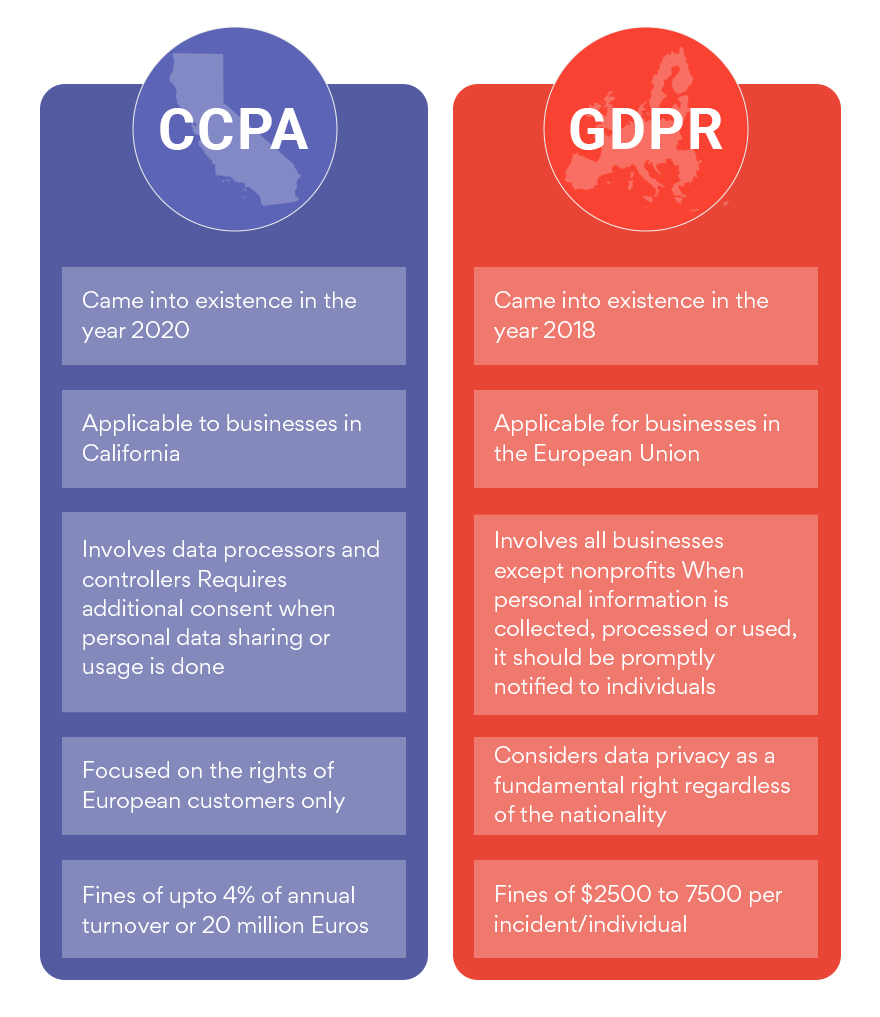MLM compliance: The roadmap to regulatory success and sustainable growth

Introduction
A business that is diverse, vast, and spread across countries and continents, managed by hundreds and thousands of people, a hitch or a glitch ought to happen. Unlike machines that get everything done to the T, human-operated, human-oriented businesses go through swirls and whirls in terms of their operations, finances, management, and most importantly compliance!
Compliance is a term often heard with a raised eyebrow and a pain in the shoulder. However, it is a vital factor that influences the growth and success of the business no matter how small or big the business is.
In the MLM and network marketing scenario, compliance is a concerning aspect, as mentioned earlier, considering the larger human intervention compared to other businesses. And it could disrupt the whole business flow if not handled with care.
Core legal requirements in the MLM sector
MLM businesses are set in a complex regulatory landscape comprising of federal and state laws. An MLM business’s primary concern is distinguishing themselves from illegal pyramid schemes, which attracts numerous compliance and regulatory warnings. To ensure this, MLM businesses must be clear with their compensation structure which focuses on commissions based on sales of products or services rather than just recruitments.
- FTC Guidelines - Of the numerous guidelines and mandates that MLM businesses are entitled to abide by regionally and internationally, The FTC or Federal Trade Commission is the most crucial, in other words, the bible of MLM compliance.
- Income disclosure statement (IDS) - For a transparent MLM business IDS is a credibility factor. IDS is an earning statement that an MLM business publishes to give distributors a clear and reliable prediction of estimated income. MLM income disclosure statement is an FTC mandate published by companies intended to educate and protect customers to prevent falling for false or misleading claims.
- State-specific laws - For MLM businesses that are spread across the length and breadth of the globe, compliance grades are subject to vary at the state level and international level. While some states might have specific regulations related to registration, product content, business practices, taxation, etc., it could vary in a different jurisdiction. MLM companies should be aware of this and set their legal framework accordingly.
- International regulations - Although state-specific laws might vary from region to region, MLM businesses are subjected to follow regulations set by international governing bodies. This includes consumer protection laws, tax regulations, and other mandates set for direct selling and MLM businesses worldwide.
- Anti-pyramid scheme laws - MLM businesses are often misjudged as pyramid schemes attracting major penalties. Anti-pyramid scheme laws are regulations devised to prohibit business practices that exploit individuals participating in the direct selling businesses through downline recruitment rather than based on the sales they make.
- Consumer protection - Like every other business, the key priority of an MLM business should be consumer protection. For this, marketing, sales, and every other business operation should be fair, transparent, and honest. Any deceptive claims or other unfair practices could hamper brand credibility and customer’s trust over the brand.
FTC has strict guidelines and regulations to prevent customers falling for false or deceptive claims and unfair practices in businesses. Also, FTC ascertains MLM companies for strict adherence to transparent and honest business practices in aid of consumer protection. The guidelines primarily highlight the need for an Income Disclosure Statement (IDS) to disclose clear, complete, and accurate information about the distributor's earning potential and severely prohibit disseminating false or misleading claims.
The commission also has strict mandates regarding buyback policies for the sold inventory that distributors possess.
An IDS is a great way to enhance brand credibility and transparency through which it is easy to attract customers and distributors with a trustworthy brand face.
These are the pillars upon which an MLM business is built. When the foundation is set strongly incorporating legal mandates pertaining to the business, the brand’s integrity is sure to increase by manifolds.
Key areas for regulatory adherence in MLM businesses
Before trying to delve into the compliance details, it is important to understand where all compliance applies to an MLM business. Or what are the compliance nitty-gritty that MLM companies should follow to stay past legal obligations and penalties?
- Compensation structure
- Product claims
- Earning claims
- Marketing and advertising
- Data protection and privacy
- Contracts and agreements
The compensation structure must be legitimate that it shouldn’t endorse recruitment and ensure that commission calculations are fair and accurate. The compensation plan should clearly disclose how or when a distributor can earn commissions and bonuses, what are the underlying conditions and requirements applicable. The plan should be in line with regulatory mandates prescribed by FTC for seamless business operations and growth.
The products or services offered by the MLM business must be honest and substantiated by scientific evidence or reliable data. These claims should also comply with FDA (Food and Drug Administration) or other norms formulated by legal bodies to stay credible and responsible for the products that are being sold. The product benefits and performance should be clearly defined and not be exaggerated or misled.
Ensure that the earning potential mentioned in business agreements is realistic and not hypothetical. Clear disclaimers about average earnings and the efforts required to achieve different levels of success should be clearly mentioned. MLM companies should refrain from projecting misleading earning guarantees and abide by the guidelines set by FTC and other legal authorities.
Ethics in every operation should be set as a core necessity for every MLM business. Every marketing material should be ethically crafted, non-deceptive, and depict original opportunities. Standard advertising practices should be strictly followed to avoid false endorsements and fabricated testimonials. Beyond setting this as company mandates, exercise caution in framing social media policies to ensure that distributors do not disseminate unsupported claims or misleading information.
One of the crucial aspects of MLM business is safeguarding the vast amount of data that comes in and goes out of the business. Adhering to privacy laws such as GDPR, CCPA, etc. are fundamentals for an MLM business to stay transparent with privacy policies. Yet another important aspect is to gain consent regarding the usage of customer data and keep them informed as to how their data will be used and protected.
For the numerous contracts and agreements involved in an MLM business, it is imperative to keep all contracts and agreements clear and comprehensive for distributors to read and understand. The terms and conditions should be fair, unbiased and not overly restrictive. A customer-centric MLM business should also be cautious while drafting contracts to stay in line with legal standards and consumer protection laws. There should be a clear and concise clause to define contract validity, how to handle and resolve disputes and agreement termination.
More than mere implementation of compliance programs, maintaining them consistently through regular audits and updates holds major importance. Continuous monitoring of business practices and integration of legal expertise is inevitable to ensure that all aspects of the business are compliant with every rule and regulation.
MLM data privacy and security

The whole MLM business revolves around the mandates set by various regional and international bodies, FTC and regulations formulated by GDPR and CCPA.
GDPR or General Data Protection Regulation came into effect in the year 2018. The rule is intended to govern data collected by businesses and individuals including the customer personal data, their browser history, etc.
According to the GDPR, breach of data security could lead to penalties of up to several thousand dollars or 4% of the company’s global annual revenue, even for a single infringement. These stringent regulations are formulated for ecommerce businesses regardless of their size to follow strict guidelines to let individuals have more control over their data and have full authority to decide who has access to their information.
CCPA or The California Consumer Privacy Act is a legal provision that is made to keep an eye on how websites collect various data from its visitors. CCPA imposes strict penalties against websites that do not have provisions to opt-out for the sale of personal information or delete their personal information.
Now, coming to think of why data confidentiality matters, it is crucial for businesses to safeguard their customer information from unauthorized disclosure which could lead to severe consequences. At the personal and business levels, privacy, loss of sensitive business strategies, and other legal obligations could severely hamper the integrity of a business organization.
Therefore, data confidentiality matters to
- Protect privacy and regulations without having to lose trust, confidentiality and face legal implications.
- Minimizing attack surface (the entire area of an organization or a system that is vulnerable to hacking) by restricting data access that can lower the risk of insider threats and accidental data loss.
- Enabling secure operations by safeguarding business processes and strategic plans from potential risks.
- Staying compliant with data regulations that ensure data confidentiality to stay away from penalties and other legal obligations.
Achieve seamless global compliance with a regulation-ready MLM platform tailored to your business needs.
Ensure global compliance nowRegulatory management strategies in MLM business
For a business as vast as direct selling and MLM, fostering trust among its distributors and customers could be a tedious task. Having a proactive approach to managing compliance can be evident in the organization’s strategies, customer and distributor morale, retention, brand reputation, profitability, and growth. Setting a compliance best practice in place is an efficient way through which businesses can strengthen their legitimacy and build trust with stakeholders.
Formulate clear and concise compensation plans
Begin with the MLM compensation plan, be sure that it is clear, concise and compliant with legal and regulatory standards. Adhere to FTC guidelines to comply with advertising standards, regulations on product claims, and laws on anti pyramid schemes. Businesses should conduct mandatory reviews of business practices, marketing materials and distributor training. Promote and maintain ethical behavior in every business operation across the organization. Also, be sure to enforce a code of conduct for every member in the MLM network.
Foster a culture of honesty and integrity
In the compliance context, transparency, integrity, and fairness shall remain dominant that aid in fostering a culture of honesty and integrity in an organization. Income disclosures and earning statistics should be published to stay transparent throughout the business. Every claim and representation of the organization should be true and verifiable. With fairness, it means to treat all distributors and customers fairly without favoritism and providing equal opportunities for everyone within the MLM structure.
Educating distributors and customers
Devise a comprehensive training program that concentrates more on legal compliance, ethical selling and precise product information. Integrate learning modules that help to identify and avoid false or misleading income and product claims. Be sure to keep distributors and customers updated on changing amendments, and various other compliance topics. Provide refresher courses through webinars, newsletter and online platforms to keep the network informed.
Enforcement of robust mechanisms to address compliance issues
Since MLM businesses mostly take place outside an organization, it is important to implement systems to keep a close eye on distributor activities and assure that the compliance guidelines are met with. It is also important to carry out audits regularly on distributor conduct, marketing practices and sales claims. Encourage every individual in your network and your customers to report any suspected violations and enforce strict disciplinary actions in case of non-compliance. In order to keep a close watch on every compliance activity, it is wiser to put a compliance team together to oversee and enforce compliance policies.
These best practices are indeed a compliance checklist that serves as a strong foundation of compliance for MLM businesses. These best practices also help strengthen the reputation of the business and ensure its sustainable and ethical growth.
Common compliance issues to watch out
While it isn’t uncommon or new for any business, MLM businesses often face numerous legal pitfalls that can challenge their prestige and good will. Most common issues often faced by MLM businesses are,
Misunderstandings of unfair practices due to complex compensation plans
The most common scrutiny that MLM businesses often face is for overstated income claims that can mislead potential distributors and customers. Complex compensation plans often create misunderstandings and allegations of unfair practices. Inconsistency in regulatory standards is another concern considering the variance in jurisdiction that leads to potential non-compliance and uncertainties.
To cope with scenarios mentioned above, earning claims should be realistic, and backed by data. Compensation plans must be clear, transparent, and precise to avoid confusion or regulatory issues.
Reputational damage caused by disgruntled distributors or customers
It is easy for a single person to defame an organization with a single review/comment or a petition against the business. Proactively addressing complaints and grievances through prompt replies and open communication is an efficient way to uphold the business’s reputation. Disputes related to earnings, product claims and contractual terms could result in costly and public legal battles. Having a robust legal agreement, fair and clear policies could help safeguard the business from any such disputes.
International compliance when operating in different jurisdictions
Legal requirements vary across borders and regions. Having a localized compliance strategy is necessary for MLM businesses to expand to new regions and international operations. Collaborating with international legal and tax experts can help ease handling cross-border sales, distributor payment and any other complex tax or legal issues. When businesses go international, it is also crucial to alter its marketing strategies and business practices according to regional cultures and regulatory environment. This helps ensure that the business policies are acceptable across every country.
New regulatory landscapes to adapt to
With technology advancing rapidly, MLM businesses are growing strong and wide. Integrating technological advancements have not only helped the sector grow in terms of sales or revenue figures but also widen its scope and capabilities.
Technological advancements
From data analytics, blockchain technology to automated compliance tools, the past decade has witnessed quite a lot of advancements in the technology front. While big data and advanced analytics aid MLM businesses track distributor activities, market trends, sales pattern and customer interactions, it holds a pivotal role in the early detection of non-compliance of any sorts. Similarly, blockchain technology helps improve security and transparency in MLM operations with an added guarantee that every distributor activity is verifiable and tamper-proof. Needless to say, compliance automation is an efficient tool that can effectively streamline compliance processes like monitoring marketing materials, product claims and most importantly, minimize the burden in managing compliance.
Transformative tools
The transformation that technology has brought into the direct selling and MLM landscape includes AI-powered systems, virtual assistants, chatbots, and predictive analytics. AI-powered systems can run continuous scanning to monitor communication across social media platforms and the internet for compliance violations of any sort. It can also flag improper income claims and any other misleading information in real time and prompt rectification actions with immediate effect.
Chatbots and virtual assistants provide instant compliance support for distributors and guide them with compliance training modules to give them a comprehensive understanding.
Customer success stories: Leading MLM companies are driving remarkable results with competent solutions
Leveraging AI for compliance and ethics in MLM businesses
AI technologies are power boosters that help increase the accuracy and efficiency of every business. With the advent of AI and automated systems, human errors could be reduced drastically. Larger chunks of data with even a minute non-compliance pattern can be easily detected. AI helps MLM business to shift from reactive to proactive risk management through prediction and early detection of any types of compliance issues across the network. This aids the business to maintain higher standards of ethics and compliance across the network.
AI-powered advanced and personalized learning platforms help curate compliance training pertaining to individual distributor needs. Gamified training modules and interactive simulations are effective techniques to make compliance training and education more engaging and effective. Also, real-time compliance support for distributors to reduce the chances of inadvertent compliance violations. Putting AI to implement stringent compliance and consistent application of ethical standards are sure to increase transparency and build trust among stakeholders, distributors and customers.
See how MLM software supports your global growth by simplifying compliance and ensuring you meet every regulation.
Request demoAnticipating changes and being equipped for tomorrow
Technology is sure to take MLM businesses to new spheres in the coming years. No matter what advancements take place, compliance shall always remain an integral part of MLM businesses. Growth and brand credibility can be yielded only by strictly abiding to compliance culture, having a comprehensive commitment to ethical practices and regulatory adherences.
For businesses small or big, the future of MLM businesses is promising because of its abundant growth opportunities. Integrating advanced technologies and stringent strategies with strong compliance backing could help build a trustful and transparent cover for the business.
- Introduction
- Core legal requirements in the MLM sector
- Key areas for regulatory adherence
- MLM data privacy and security
- Regulatory management strategies in MLM business
- Common compliance issues to watch out
- New regulatory landscapes to adapt to
- Leveraging AI for compliance and ethics in MLM businesses
- Anticipating changes and being equipped for tomorrow
Epixel MLM Software anchored 100+ network marketing companies to success through their business process automation in more than 88 countries. Let Epixel MLM Platform revolutionize your MLM business with 100+ proven features intelligently tuned for small, medium, and large enterprises.
